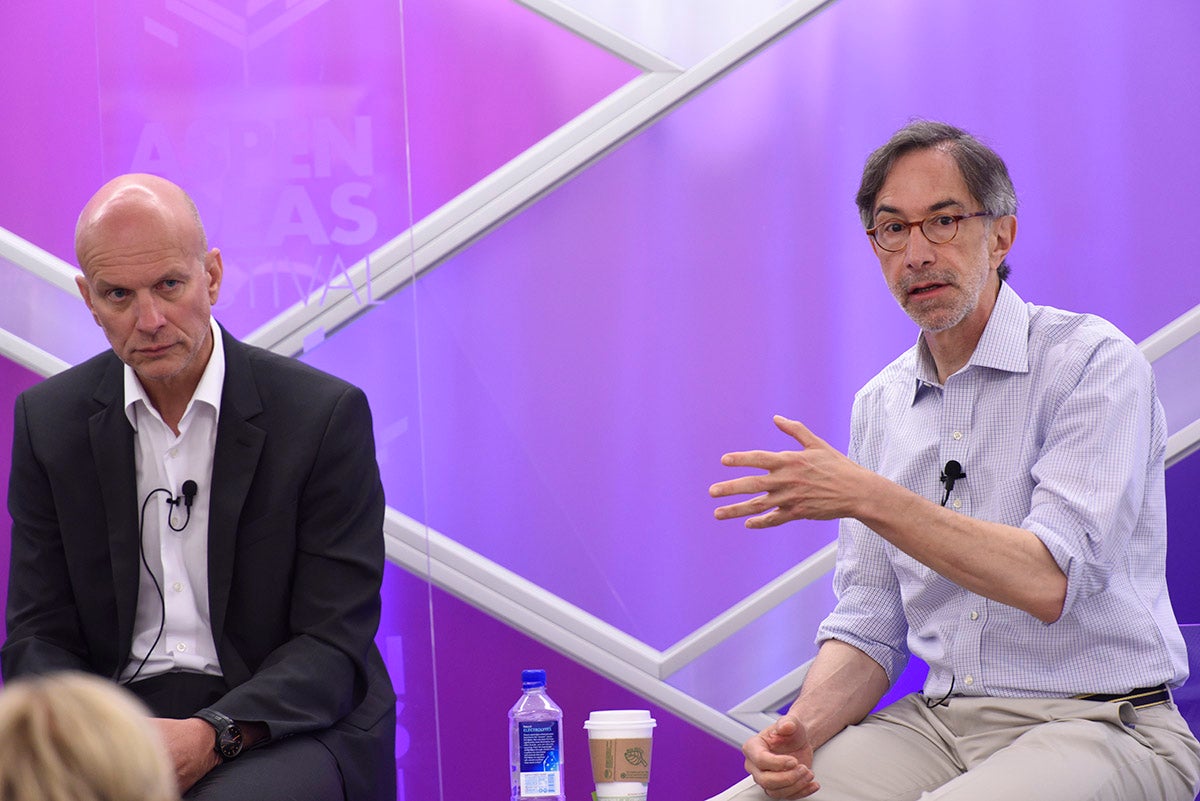
As we head into summer, the Aspen Institute is gearing up for Spotlight Health 2016 featuring an incredible lineup of speakers and topics. In honor of that upcoming event, this recent podcast episode includes highlights from last year’s event, with discussions on food safety, beating addiction, and how smartphones will radically change health care.
Aspen Institute Radio, our two-hour radio show, airs every Saturday and Sunday on SiriusXM Insight (channel 121). Each episode dives into the topics that inform the world around us. Here in our weekly Listen Longer posts, we’ll recap each episode and show where you can read, watch, and listen to more. Don’t have SiriusXM? Try it for free for a month here.
Why Your Smartphone Will Radically Change Health Care
With the smartphone revolution comes an increasingly powerful new set of tools to reduce our use of doctors, cut costs, speed up the pace of care, and empower patients. Soon, we will be wearing attachments to diagnose ear infections or track heart rhythms and using apps to monitor our mental health. Digital avatars won’t replace physicians, but the relationship will be radically altered. We’ll be able to do routine diagnoses and monitoring (lab tests, physical exams, sensors, and some imaging) on demand.
Wherever a mobile signal is available so, too, is the promise of marked health improvements. What are the benefits and risks of this bottom-up inversion of health care? Is it really the most profound shakeup in the history of medicine?
Escaping Capture: What Science Tells Us about Beating Addiction
Addiction has been scientifically established as a disease, not an absence of willpower. Neuroscientists are studying how drugs, if abused, alter the brain. Animal models are guiding us to new knowledge at the molecular level, and genetic tests are helping to distinguish many forms of addiction. With such research comes hope for better prevention strategies, more effective pharmaceutical regimens, reduced stigma, and new guidelines for achieving lasting recovery.
Ironically, some of the future drugs to treat addiction may come from the very companies that also sell drugs that addict, such as painkillers. Is that an ethical problem? Where is the latest science taking us, and what does it mean for treatment?
Is Your Food Safe?
New food-related disease outbreaks seem to hit the news every week, but it’s hard to know whether that reflects an overzealous press or an under-performing government lacking funds for adequate inspections. Food safety is further complicated by an increasingly globalized food supply; for example, as much as 90 percent of the fish consumed in the US is imported. Activists want the USDA to monitor slaughterhouses more vigilantly, but the big meat processors say industry can police itself. How do we ensure the safety of our fish, meat and produce?
Spotlight Health 2015: Closing Session
Spotlight Health returned to Aspen, Colorado, on June 25-28, 2015, as the opening segment of the Aspen Ideas Festival. The theme was “Smart Solutions to the World’s Toughest Challenges.” From Ebola to cancer, we took on these headline-blaring challenges and looked at the future-facing solutions coming from the fields of science, art, technology, and design.

